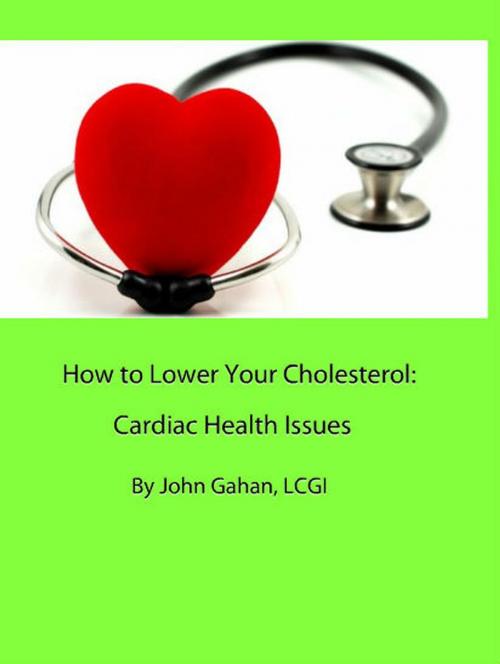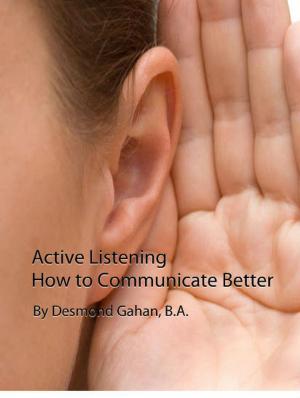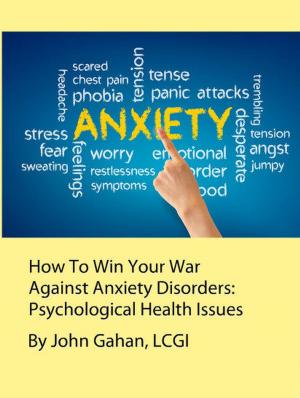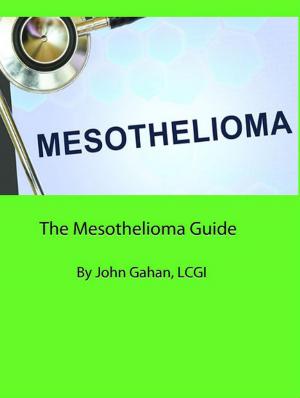How to Lower Your Cholesterol: Cardiac Health Issues
Nonfiction, Food & Drink, Healthy Cooking, Low Cholesterol, Health & Well Being, Health, Nutrition & Diet, Diets| Author: | John Gahan, LCGI | ISBN: | 9781386987321 |
| Publisher: | Sepharial | Publication: | August 29, 2017 |
| Imprint: | Language: | English |
| Author: | John Gahan, LCGI |
| ISBN: | 9781386987321 |
| Publisher: | Sepharial |
| Publication: | August 29, 2017 |
| Imprint: | |
| Language: | English |
Your blood vessels and heart are called your cardiovascular system. One of the best ways to prevent cardiovascular disease (such as stroke, heart attack and angina) is to keep your cholesterol at a healthy level.
Cholesterol is a type of fat found in your blood. You need a certain amount to produce hormones. But too much cholesterol sticks to your artery walls to form plaque. This plaque can build up and may block or narrow the artery. This process is called atherosclerosis.
If an artery becomes blocked, the heart muscle becomes damaged, this is known as a heart attack. If an artery to the brain is blocked, it may damage the brain, and this is called a stroke.
Why is a healthy cholesterol important?
The main cause of cardiovascular disease is the hardening of arteries through plaque known as atherosclerosis. High cholesterol increases your chances of cardiovascular disease such as heart attack and stroke.
Cardiovascular diseases are the biggest cause of death for both men and women in Ireland. But healthy eating, being physically active and quitting smoking can help us all to greatly reduce our chances of these diseases.
Having high cholesterol affects people of all ages. Making small changes now can make a big difference to your life now and in the future, especially if you already have heart disease or a family history of it.
First, where does cholesterol come from?
Cholesterol is made in the body mainly by the liver. This is often called blood cholesterol. The body can produce all the cholesterol it needs to carry out its many functions and can usually maintain a healthy level of blood cholesterol.
However, sometimes the balance goes wrong and there is an increase in blood cholesterol. This may result from inherited problems or from eating too much saturated (animal) fat or too many foods from the top shelf of the pyramid
There are two main types of cholesterol:
- HDL cholesterol (High Density Lipoprotein): this is called good cholesterol or healthy cholesterol. Why? Because HDL cholesterol mops up cholesterol left behind in your arteries and carries it to your liver where it is broken down and passed out of your body. Regular physical activity and exercise can help increase your HDL level. High levels of HDL cholesterol can protect you against having a heart attack or a stroke.
- LDL cholesterol (Low Density Lipoprotein): this travels from your liver through your arteries to other parts of your body. LDL is called bad cholesterol because it sticks to the walls in your arteries – making them narrow. This reduces the blood supply to your heart or brain. Eating too many foods high in saturated fat can raise your LDL cholesterol. High levels of LDL cholesterol increase your risk of heart disease and stroke.
As a memory aid, think of the ‘H’ in High Density Lipoprotein (HDL) as ‘Healthy’ cholesterol, whereas think of the ‘L’ in Low Density Lipoprotein as ‘Lousy’ cholesterol.
And then there’s triglycerides:
Triglycerides are another type of fat found in your blood. Too much triglyceride in your blood can increase your chances of getting heart disease and stroke.
Could I have high (or too much) triglycerides? Yes, anyone can have high levels, but it is more likely if you are: overweight; drink too much alcohol; eat lots of sugary foods; or are not very active. Ask your doctor to check your triglyceride levels.
Your blood vessels and heart are called your cardiovascular system. One of the best ways to prevent cardiovascular disease (such as stroke, heart attack and angina) is to keep your cholesterol at a healthy level.
Cholesterol is a type of fat found in your blood. You need a certain amount to produce hormones. But too much cholesterol sticks to your artery walls to form plaque. This plaque can build up and may block or narrow the artery. This process is called atherosclerosis.
If an artery becomes blocked, the heart muscle becomes damaged, this is known as a heart attack. If an artery to the brain is blocked, it may damage the brain, and this is called a stroke.
Why is a healthy cholesterol important?
The main cause of cardiovascular disease is the hardening of arteries through plaque known as atherosclerosis. High cholesterol increases your chances of cardiovascular disease such as heart attack and stroke.
Cardiovascular diseases are the biggest cause of death for both men and women in Ireland. But healthy eating, being physically active and quitting smoking can help us all to greatly reduce our chances of these diseases.
Having high cholesterol affects people of all ages. Making small changes now can make a big difference to your life now and in the future, especially if you already have heart disease or a family history of it.
First, where does cholesterol come from?
Cholesterol is made in the body mainly by the liver. This is often called blood cholesterol. The body can produce all the cholesterol it needs to carry out its many functions and can usually maintain a healthy level of blood cholesterol.
However, sometimes the balance goes wrong and there is an increase in blood cholesterol. This may result from inherited problems or from eating too much saturated (animal) fat or too many foods from the top shelf of the pyramid
There are two main types of cholesterol:
- HDL cholesterol (High Density Lipoprotein): this is called good cholesterol or healthy cholesterol. Why? Because HDL cholesterol mops up cholesterol left behind in your arteries and carries it to your liver where it is broken down and passed out of your body. Regular physical activity and exercise can help increase your HDL level. High levels of HDL cholesterol can protect you against having a heart attack or a stroke.
- LDL cholesterol (Low Density Lipoprotein): this travels from your liver through your arteries to other parts of your body. LDL is called bad cholesterol because it sticks to the walls in your arteries – making them narrow. This reduces the blood supply to your heart or brain. Eating too many foods high in saturated fat can raise your LDL cholesterol. High levels of LDL cholesterol increase your risk of heart disease and stroke.
As a memory aid, think of the ‘H’ in High Density Lipoprotein (HDL) as ‘Healthy’ cholesterol, whereas think of the ‘L’ in Low Density Lipoprotein as ‘Lousy’ cholesterol.
And then there’s triglycerides:
Triglycerides are another type of fat found in your blood. Too much triglyceride in your blood can increase your chances of getting heart disease and stroke.
Could I have high (or too much) triglycerides? Yes, anyone can have high levels, but it is more likely if you are: overweight; drink too much alcohol; eat lots of sugary foods; or are not very active. Ask your doctor to check your triglyceride levels.















